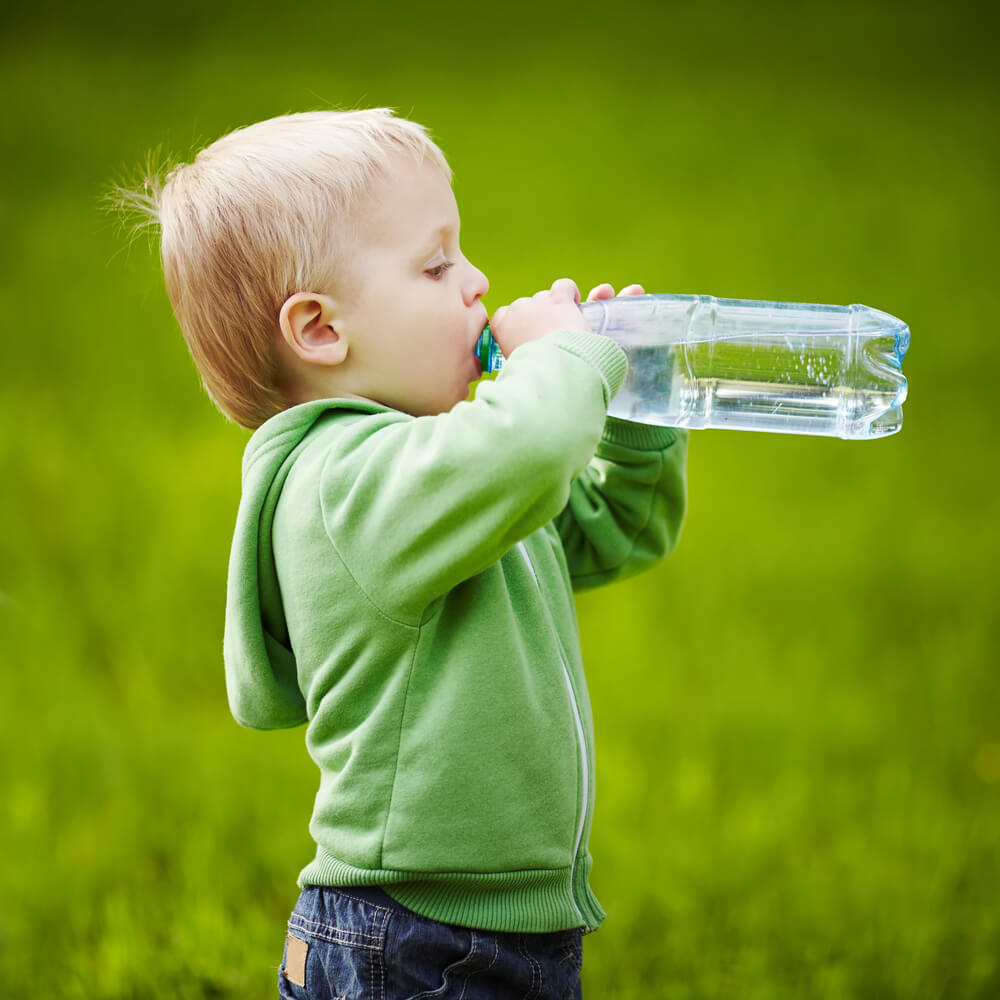
Dehydration In Babies What You Need To Know
1 Jul 2022 | 5 min Read
Tinystep
Author | 2574 Articles
Dehydration in Kids/Babies – What You Need To Know Everything You Need To Know About Hydrating Your Little Ones Keeping Dehydration Away
Consuming a whole bucket of water could make one turn pail. *Ba dum tss*
Jokes apart, water is one of the key elements in sustaining life. It makes up 60%-70% of the human body and 92% of blood. This is enough to highlight how important water is to the human body. But I’m sure you already know this. So, you probably also know how important it is to make sure your baby is getting the right amount of water every day. On average, a child should have around 6 glasses of water a day. The problem a lot of parents face, however, is dehydration in their kids.
What is the cause of dehydration in my baby?
Children tend to get more dehydrated due to their weaker immune system in comparison to adults. You may ask, “What does the immune system have to do with dehydration?”. The answer is that because of having a weaker immune system, they get sick more often. This sickness manifests in the form of vomiting, diarrhea, and fevers. All of these lead to loss of excess water from the body. Some leading factors of this are:
1. Viral infections
2. Bacterial infections
3. Parasitic infections
Another reason your child might be dehydrated is because he/she is having trouble eating or drinking. This could, additionally, be caused by sores in the mouth, which make it painful to eat, drink, or swallow.
Children also love playing, which means they’re more likely to sweat out a lot of the water they consume.
How do I know that my baby is dehydrated?
A dehydrated child would exhibit many of the symptoms listed below.
Symptoms of mild dehydration include:
1. A dry or sticky mouth
2. Parched/dry lips
3. No tears while crying
4. Urinating less often (a dry diaper is a sign of this)
5. Dark, strong smelling urine
6. Lethargy
Symptoms of severe dehydration include:
1. Sunken eyes
2. Dizziness, drowsiness, and lightheadedness
3. Cold hands and feet
4. Irritability (fussiness)
5. High fever or vomiting
How do I fix it?
For mild cases of dehydration, you can treat your baby at home. Making your little one drink lots of fluids is the first step to combating dehydration. Drinks rich in electrolytes are extremely beneficial as these also restore some of the sugar that has been lost. You can try drinks like ORS (Oral Rehydration Solution) or other electrolyte-filled drinks (after consulting with your doctor). Some children don’t like the taste of these drinks. So, you may also give them popsicles or water-based soups, which have water content. You could also give them ice chips as these are also cooling. Consult your doctor regarding how much ORS to give your child, as there might be certain directions or specifications depending on his/her age and weight.
If your child is severely dehydrated, take them to the emergency room at a hospital or to a doctor. They may have to administer some liquids through an IV (intravenous) tube. In the case of any infections, the doctors might prescribe some antibiotics or other medicines.
What can I do to ensure this doesn’t happen?
There are many prevention measures that you can take to make sure your child doesn’t have to face the discomfort of dehydration. These include:
1. Ensuring that your little one drinks a lot of water, especially on hot days
2. Offering them a glass of water every couple of hours
3. Giving them slices of fruits that have high water content
4. Don’t increase the amount of juice or carbonated drinks that he/she drinks as these contain a lot of sugar and can be bad for health (you can try diluting them instead)5. Be alert for any signs of fevers or infections of any kind and administer medicines accordingly (after consulting your doctor)
5. Be alert for any signs of fevers or infections of any kind and administer medicines accordingly (after consulting your doctor)
6. If your child has a sore throat, first try to ease the discomfort (through medicine) and then give him/her liquids to drink (avoid juices with high citrus content as these tend to cause a burning sensation in the throat).
With children, it’s important to be proactive and alert so you can catch the problem early. There are a lot of home remedies that can be administered in the case of ailments such as colds, coughs, fevers, and dehydration. Catching the problem early means you can probably use home remedies rather than taking your child to the doctor. Consuming a lot of medicines may be unhealthy as it affects the immune system in the long run. The best way to keep them healthy is to enforce preventive measures rather that trying to fix the problem once it happens, so it’s best to ensure that they maintain a healthy diet and drink lots of fluids.
A


Suggestions offered by doctors on BabyChakra are of advisory nature i.e., for educational and informational purposes only. Content posted on, created for, or compiled by BabyChakra is not intended or designed to replace your doctor's independent judgment about any symptom, condition, or the appropriateness or risks of a procedure or treatment for a given person.
